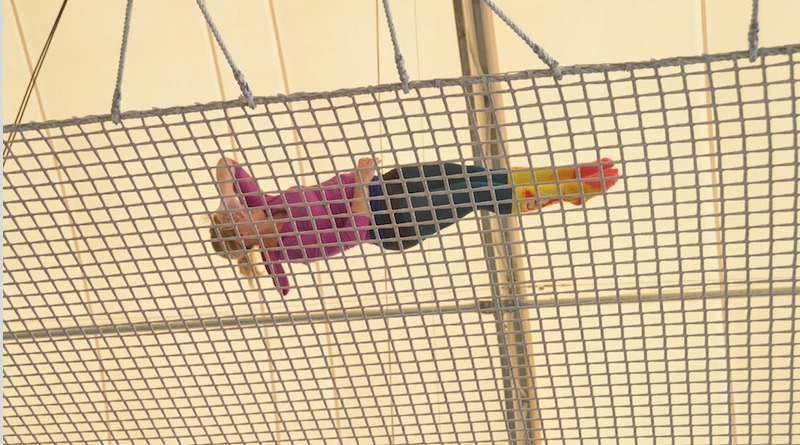Community, Leadership, Experimentation, Diversity, & Education
Pittsburgh Arts, Regional Theatre, New Work, Producing, Copyright, Labor Unions,
New Products, Coping Skills, J-O-Bs...
Theatre industry news, University & School of Drama Announcements, plus occasional course support for
Carnegie Mellon School of Drama Faculty, Staff, Students, and Alumni.
CMU School of Drama
Monday, September 23, 2019
Mental Health & Circus; The Elephant in the Room– Crucial Resources and a Call for Action
CircusTalk: The mental health of the circus performer informs the work they make. The mind tells the body what to do and the mental game is such an important part of performance and skill. So why then is mental health such a taboo topic in the circus community? Perhaps it is because the community is just a microcosm of our society and thus it takes on the characteristics of the larger society. Nevertheless, I found that there is not much access to research about the mental health of circus performers and the specific challenges that they face, let alone research about treatments specific to circus performers. More research and mental health training in schools and studios would lead to a healthier industry, better art, less lawsuits, and happier performers.
Subscribe to:
Post Comments (Atom)

4 comments:
This was an interesting article and it grabbed my attention because of the circus. Mental health is still such a taboo and the mental health first aid course is great. Becoming certified as an EMT was about 190 hours for me, half an hour of which was spent on mental health response, which is crazy because I would be expected to handle something like that. Traveling shows in general are really difficult and talking to anyone who has done that will tell you that it is a tough life, living on the road. The stereotype of the sad clown is a real thing and that’s tough because we associate people who are funny with people who are in good psychological shape. The standard example is Robin Williams, but he is by no means the only comedic performer to suffer like that. The article didn’t mention this specifically, but substance abuse and abuse have also historically been prevalent in the circus.
I don’t think it surprises anyone that the circus folks are hard core dedicated to their craft, but, in my humble opinion, under no circumstances should anyone’s art ever drive them to a place of such deep pain and toxicity. It breaks my heart to see the ways in which the artistic community has this pattern of such high demand that often peoples’ passion evolves into the bane of their existence. The stress of constant demand for perfect performance layered with bullying, harassment, criticism coming with ageing, lack financial support, and fear of injury, is a system that is designed to regularly push people to breaking points. I appreciated how this article extended past just the research and the acknowledgement of the problem, and went into how we begin to cope with these challenges and change this system. Bringing this mentality in to the educational sphere of the circus arts is a really important step in creating sustainable practices for the industry as a whole.
It is so powerful to see people being so vulnerable and honest about their experiences within different entertainment fields. I was not aware of the circus industry specifically when thinking about this topic. It was interesting to see that psychologists have begun to actually put tangible numbers and research to different industries in relationship to their experiences. I think it is as important as bringing at physical therapist on tour would be to also bring a counselor of psychologist. Alternatively, it would be nice to have an online resource for counseling and therapy. I think there is also a lot of potential for development in the tour management and helping to protect their performers, especially in the realm of performance stresses and anxieties. Although there is so much potential for injury in the circus world, it seems that there is also an additional layer of stress from external factors like criticism and bullying. I hope this is something that continues to get better as the conversation grows larger.
I am surprised about the fact that not enough research of the relationship between mental health and circus artists is made. Although they perform astonishing tricks that make audience hard to believe they are the human beings, it is obvious that those dangerous performances are against the human instinct of survival, which requires psychological support. The article reminded me of the interview of the actor who played Pippin in the Japanese version of the musical “PIPPIN”: a musical with circus choreography and acrobatics. He said that he had to conquer the fear during every show and the interviewer admired his braveness. However, as the article suggests, I believe the fear that occurs in the process of acting must not be considered as a personal matter, in order to keep the actors healthy for the long runs and future performances. Likewise, I have been concerned about the question “Are people with mental health issues more attracted to the arts as an outlet, or is a career in the arts somehow causing or exacerbating these issues within people?” for years now. Either of the ways are correct of course, and I think this subject is related to the idea that acting involves embarrassment, as I commented on the article “What is Intimacy Direction?”
Post a Comment